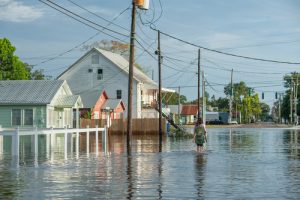
U.S. Sen. Bill Cassidy (R-LA) last week said he plans to introduce a bipartisan bill that would help save lives by authorizing a new National Disaster Safety Board.
“By establishing a natural disaster safety board, lessons learned from past disasters save lives and perhaps even prevent future disasters,” Sen. Cassidy said last week.
Along with U.S. Sen. Brian Schatz (D-HI), Sen. Cassidy will unveil the U.S. Senate version of the Disaster Learning and Life Saving Act of 2020, H.R. 8569, which U.S. Reps. Katie Porter (D-CA) and Garret Graves (R-LA) introduced on Oct. 9 to create a permanent and independent board that would study the underlying causes of disaster-related fatalities and property damage nationwide.
The new National Disaster Safety Board (NDSB) would make recommendations to all levels of government on how to improve the resiliency of communities across the country, according to a bill summary provided by Sen. Cassidy’s office.
“Americans across the country from the Gulf Coast to California are dealing with the results of natural disasters,” Sen. Cassidy said on Oct. 9.
Currently, policymakers rely on a patchwork of studies, after-action reports, audits, and media reports to understand the impacts of natural disasters, which are inconsistent and vulnerable to political pressure, according to a one-page bill summary.
The NDSB, modeled after the National Transportation Safety Board, which investigates plane crashes, major railroad accidents, and commercial highway accidents, would be comprised of seven members chosen for their experience in emergency management, public health, engineering, social and behavioral sciences, and experience working at the state and local level and with vulnerable communities, according to the summary.
The NDSB also would include a special office to focus on disaster impacts to low-income communities, communities of color, the elderly, and people with disabilities, and would collaborate with affected state and local governments on reports and recommendations.
The Disaster Learning and Life Saving Act is supported by the Insurance Institute for Business and Home Safety, the Natural Resources Defense Council, the Institute for Diversity and Inclusion in Emergency Management, and the National Low Income Housing Coalition, among others.



